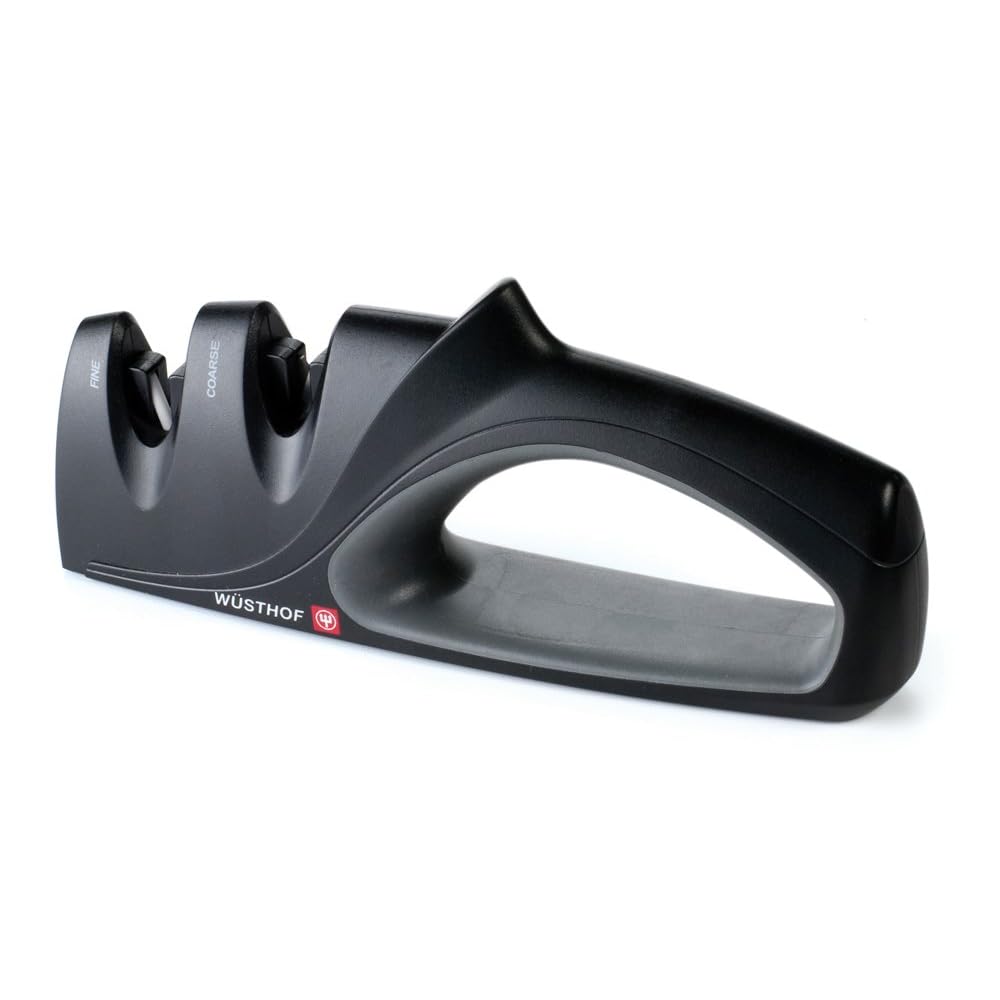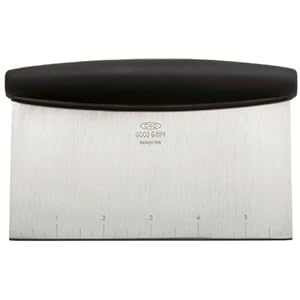I really enjoy cooking, but have no delusions about my knife wielding abilities. This class went from the very basics to some fun advanced techniques to wow our friends with. We learned everything from how to prepare our working space and picking a proper knife to how to hold our knives and basic knife maintenance. I picked up some really valuable tips in the class that I thought I'd share. Many of these were major "Ah, ha" moments for me and some (read: all) were things I think I really should have known a long while ago.
By the way, just on an aside: Don't you find it annoying when people take a class geared for those of us with little to no experience and then act like they know as much or more than the instructor? Yeah, I'm speaking directly to you middle-aged-man-with-an-entire-set-of-Shun-knives-that-you-actually-purchased-in-Japan. It is apparent to me that you only took the class to boost your ego and annoy others.
Anyway...
8 things I learned in my knife skills class that I wish I'd known years ago:
1. Use the right knife for the job:
Growing up, I only ever remember my mother using one (seriously one) knife for just about everything. (We did have some steak knives as well, but I only remember using those when cutting cardboard for school projects. My memory may be a tad selective on this point.) From an online search, the closest description of my mother's knife is a 9" Kitchen Utility Slicer. I have a hard time wrapping my mind around using one crappy knife for everything. That knife would be virtually worthless in my current kitchen. So, I wasn't totally surprised by the fact that there is type of knife specifically designed for every job in the kitchen. I have my chef's knife, my santuko knife, my paring knife and an assortment of utility blades, but that has never stopped me from using my smallest utility blade for chopping up an apple or from using my chef's knife to supreme and orange (actually just learned how to do that, I'm awesome).
Apparently, a knife is already a pretty dangerous weapon and using the wrong knife makes it more dangerous...who knew?
This brings me to my second point:
2. Use a SHARP knife:
A dull knife is way more dangerous than a sharp knife. I'm sure this is common knowledge for most people, yet, I had never sharpened my knives. The old knife from my childhood was so dull and battered that I have no doubt we were seriously taking our digits for granted by using it for almost every job that required a knife. It is amazing what a really sharp knife can do for your general emotional state in the kitchen. Gone are the days of hacking through your food and mangling every tomato you ever set a blade to. By the way, fewer tears when slicing an onion with a sharp blade. (oh and also a cold onion. Just put it in fridge 30 mins before you slice it. That's just a tiny, but useful tip for you.)
3. Sharpen your knives once every year:
To keep your knives in tip-top condition and in the safest condition possible, take them to be sharpened once a year. There are people that do this and it is surprisingly affordable.
 4. Honing:
4. Honing:During the year, make sure you hone your knives EVERY time you use them. I had absolutely no clue what the difference between sharpening and honing was. As it turns out, sharpening shaves the blade and honing realigns the blade. Because I didn't want to ruin my blades by using a honing steel improperly, I picked up this nifty little sharpener/honer.
It isn't a true sharpener, though it will shave burrs off of your blade if you have dropped it, or after a large amount of chopping. I run my knives through it once I'm done using them and before I put them back in their block.
5. Get yourself a bench scraper:
You know when you have just finished dicing an onion and you need to scrape it off of your board into the pan? I always just used my knife to do this. Essentially, if I had known how to sharpen or hone, this would have totally messed up my beautiful work. Do NOT use the blade of your knife as a scraping tool. Use this bench scraper instead. I already had one of these bench scrapers in my drawer. Of course, I only used it to scrape dough off of my board when I was baking bread. Turns out that it is a wonderful tool for transferring food from your board to a pan or bowl. If you must use your knife, use the back of it and not the blade.
6. Keep a damp rag next to your workspace:
Speaking of blade maintenance, it is a good idea to keep your knife clean. If you place a damp rag next to your cutting board while you are working, you will be able to clean your blade immediately and not have to jackhammer minced garlic off of it later (which is good exercise and all...) Also, it is great to have a damp cloth handy to wipe down your board quickly between ingredients.
This is one thing that I really didn't have a clue about. You are actually supposed to pinch the heel of the blade (right in front of the bolster) with you thumb and pointer and then wrap the rest of your fingers around the handle. This technique has revolutionized my chopping, slicing and dicing. It gives you a lot more control. It is awkward at first if you are used to a different grip, but I highly recommend it.
8. Keep your work space clear:
You will make your life and chopping easier if you allow yourself the entirety of the cutting board. I am guilty of leaving scraps, ingredients I've just chopped, additional knives and all kinds of odds and ends on the cutting board until I'm mincing in a very tiny patch of board amongst all of that riff-raff. I have made my life a lot easier now that I make a conscious effort to clear the board before I begin working.
I learned so much in the class. I'd share more, but I don't want to be accused of ripping off the class just for this post. I would definitely recommend finding a knife skills class in your area. Knowing the essentials has really changed my food prep and made me more confident in the kitchen.
Have a Happy Day!
~MJ
This post is participating in:
Thrifty Thursday
Seven Thirty Three
House of Hepworths
Friday Flair @ WhipperBerry


Thanks for the neat article--and yes, it is irritating for us beginners to hear from "holier than thou" classmates. I figure their needs go way beyond learning knife skills.
ReplyDelete